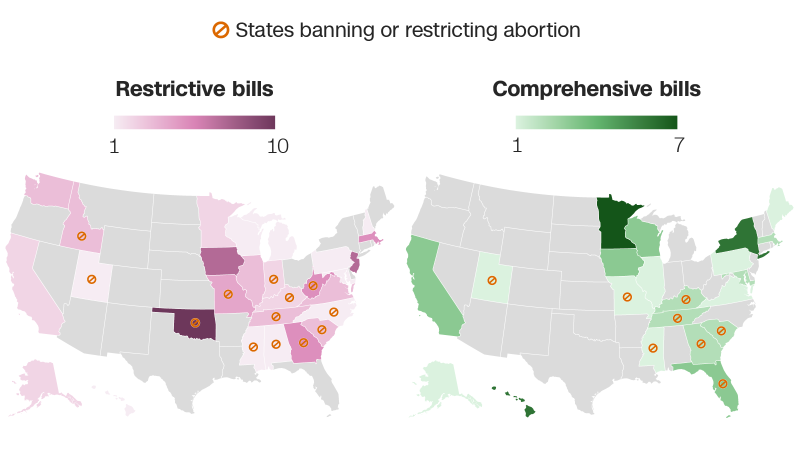The year 2024 has seen a significant increase in the number of sex education bill proposals in state legislatures. At least 135 bills have been introduced, with the majority focused on placing restrictions on sex education in K-12 public schools. This surge in proposals comes after the Supreme Court eliminated the federal constitutional right to abortion in 2022, leading to increased legislation restricting how sex education is taught, particularly in states limiting abortion access.
Restrictive sex education bills include measures that ban discussions on sexual orientation or gender identity, remove contraception instruction, or promote abstinence. In contrast, comprehensive bills aim to ensure sex education is inclusive and covers important topics such as consent and menstrual health. The shift from comprehensive to restrictive bills has been drastic, with a decrease in comprehensive bills from 80% in 2018 to just 22% in 2023.
The impact of restrictive sex education bills extends beyond limiting abortion access. These bills make up a majority of the proposals in states where abortion is restricted or banned, as well as in states where abortion is legal. The lack of comprehensive sex education can hinder individuals from understanding their sexual rights, their bodies, and how to access healthcare, ultimately contributing to restrictions on abortion access.
Parental oversight and curbing discussions around sexuality and gender have become prevalent themes in recent bills. Some bills require educators to adhere to strict procedures for notifying and obtaining consent from parents regarding sexual health education. There has also been a rise in bills banning sex education in specific grade levels, such as elementary schools, with a shift away from comprehensive instruction that includes topics like human trafficking prevention and consent.
Despite the increase in sex education bill proposals, only a small number have been passed in recent years. Most of the bills introduced have been restrictive in nature, indicating a trend towards indirect approaches to impacting sex education. Bills like Arkansas’ SB 384, which mandates schools to teach adoption awareness as an alternative to abortion, illustrate the indirect ways lawmakers are influencing sex education through legislation.
The surge in sex education legislation is likely linked to the upcoming election, with lawmakers using these bills to position themselves on important social issues. This wave of restrictive bills highlights the ongoing debate surrounding sex education in schools and its impact on important issues like abortion access and LGBTQ+ rights. The battle between comprehensive and restrictive sex education bills continues to play out in state legislatures across the country, with implications for the future of sex education in public schools.


